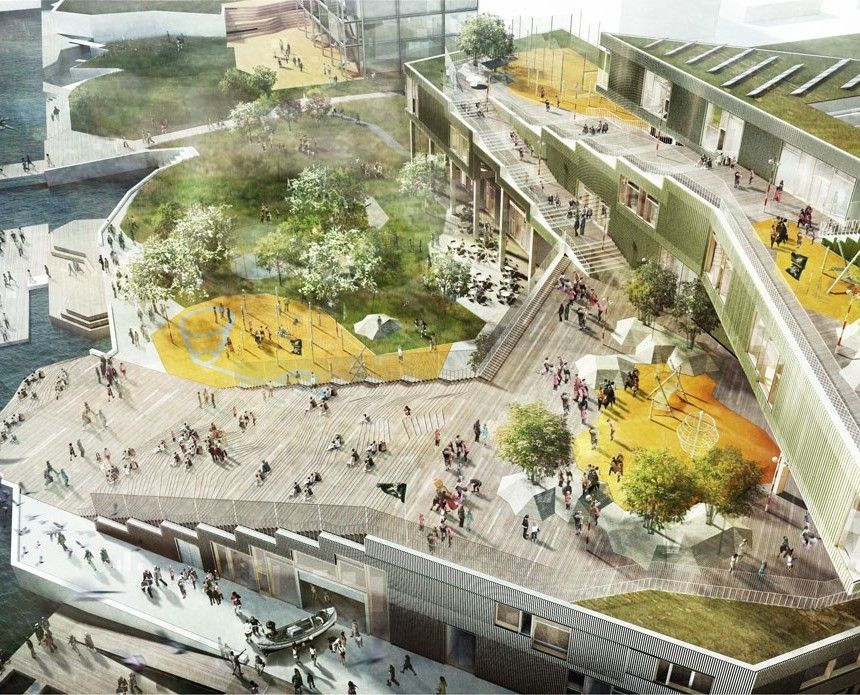Parents with children attending both the European School and the Danish section of the award-winning Skole in Sydhavn would not give any awards away for the design of the school’s playground.
The school is built on the harbour, and the play area in question – where children as young as 5-years-old will be spending their free time, often unsupervised – runs up to the water’s edge, with only a small bulwark between the kids and an unexpected swim.
“There is no safety rail or anything else to prevent a child from falling in,” said Professor Brooke Harrington, a Sydhavn parent.
“Imagine how that will play out in the winter when the water is icy and kids are wearing heavy winter gear.”
An expat problem?
Harrington said that parents have been informing the municipality of their concerns for nearly a year, and the response has been to “stop worrying so much”.
Part of the problem, Harrington continued, is that some city officials seem to consider the whole thing more of a case of overprotective foreign parents than a real danger.
“A city official I spoke with yesterday morning literally told me that foreigners ‘don’t understand water’ the way that Danes do,” said Harrington.
However, some Danish parents with children attending the school have also expressed concern about the lack of fencing between the playground and the water.
Learning by doing?
The school prides itself on its natural and maritime profile, and takes the position that it is part of a student’s education to learn how to be safe around the water with no fences to give what it calls “a false sense of security”.
“All of the children know where the bulwark is,” said Morten Biering, the school’s head teacher.
“We work from the idea that there is a mental fence in the heads of the children that they understand.”
Pia Allerslev, Copenhagen’s deputy mayor for children and youth thinks the design of the school is just fine as is.
“For me, this is a way for children to learn how to be close to water and what they should and should not do,” she said.
Unequal education
Harrington said that logic does not apply to the students at the European School at Sydhavn.
“While the students at the Skole i Sydhavn get school-sponsored swimming and water safety training, the children of the European School receive no swimming or water safety training from the school,” said Harrington.
“The idea of putting fences ‘in the minds of the children’ simply does not apply to a large segment of the children attending the school.”
READ MORE: New European school reports enormous interest
The parents involved say that they will continue to press the school and the municipality for greater safety measures to prevent children from falling in the water.















